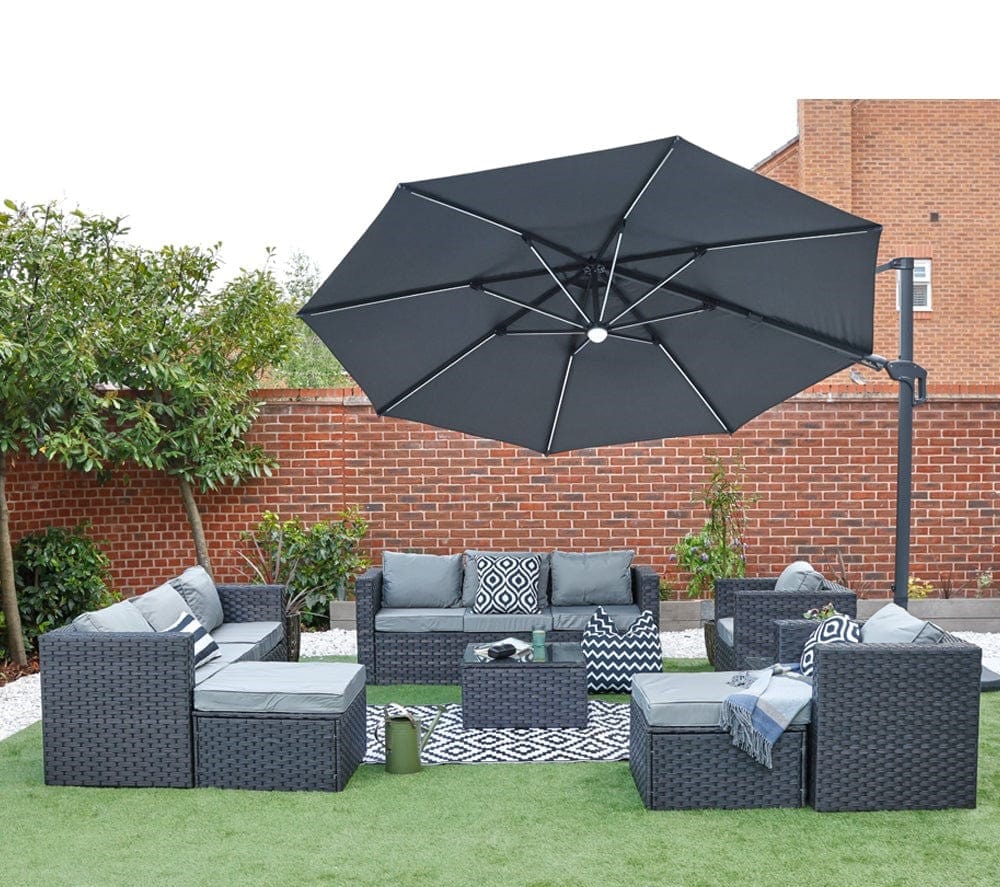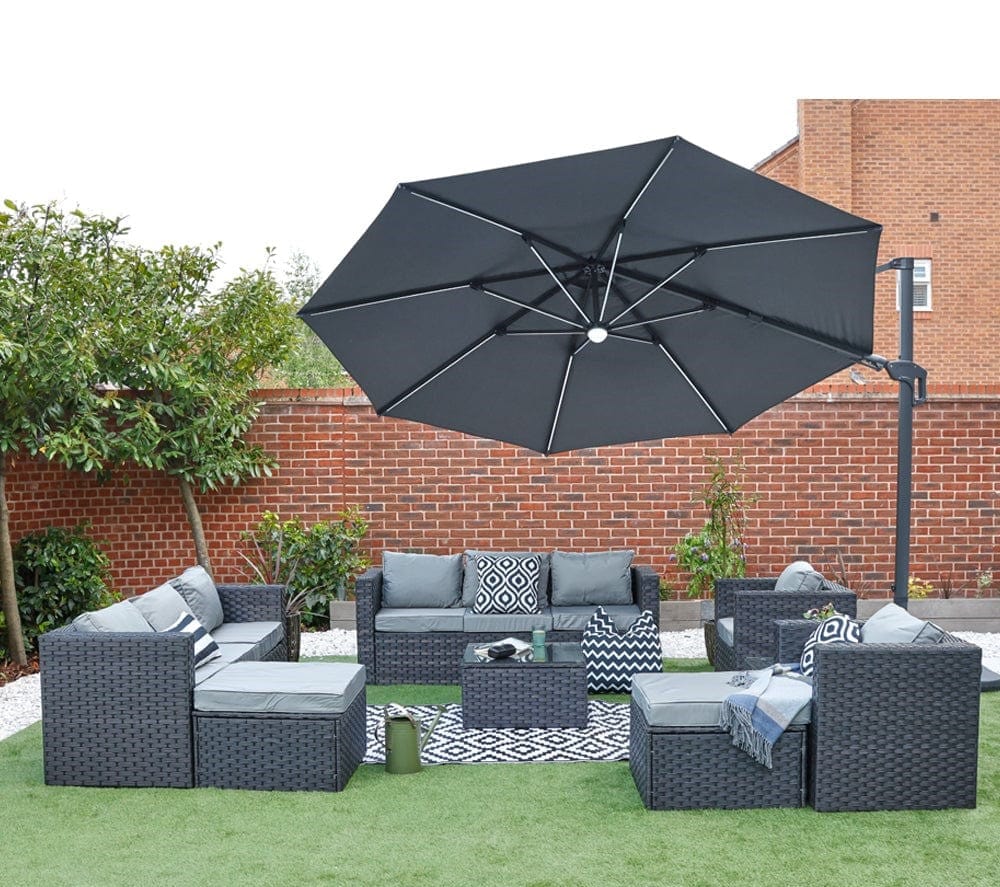6 Ways On How To Keep Cats Out Of Garden
6 Ways On How To Keep Cats Out Of Garden
You’ve just done up your garden and used all your landscaping expertise to create a masterpiece straight out of your dreams. So naturally, everyone loves and appreciates your horticulture skills. But to your dismay, the list of admirers includes your neighbourhood cats. That's right, your garden is an excellent target for any pet, stray, and feral cats in the area, to lounge around or to use as a means to answer nature’s call. After all, the soft grass and cool soil will make your garden the perfect playground for cats. As a result, you may find cat poop, cat urine in your freshly made garden, or worse, your precious flower beds dug up and destroyed. To avoid such catastrophe, pun intended, you can use some safe but sure-fire ways of keeping feline visitors at bay. Here is a list of some tried and tested methods to help keep your garden cat-free.
1. Build A Barrier
The best way to keep a cat out of your garden is to build a physical barrier that prevents them from getting in. The more difficult it is for feline visitors to get into your garden, the more they stay away.
- Fencing
Using a garden fence is the most low-cost and straightforward method of keeping a cat out. However, most cats have no trouble climbing on top of low fences. For this reason, if you are installing a fence to keep cats out of your garden, look for chain link fences that are at least 6 ft high and have a 2 x 2 inches mesh. You can even use an overhang of 2 ft for added security.
- Low voltage
If a regular fence is not a strong cat deterrent, you should consider a low voltage fence. The important point to be noted here is that the voltage used is low, so cats will not be harmed in any way. Even if you raise the wire 4 inches from the ground, cats will still steer clear of your garden. However, you must ensure that you keep small children away from such fences.
- Re-inforced fencing
If you don’t want to spoil the look of your garden by installing a large fence, you could simply reinforce your existing fence and make it more difficult for cats to get into—some methods of reinforcing your fence with additions such as roller bars. You can add roller bars on top of your regular garden fencing and they help prevent feline visitors from entering your garden by making it hard for them to climb the fence. When neighbourhood cats try to jump on top of your garden fence, they will roll right back down with these rollers.
2. Repel Them With Smells
Cats have an acute sense of smell that they use for several reasons. Aromas play a large part in cat behaviour, and you can easily use this quality to deter cats from your garden. Following are some ways you can use scents to keep cats from entering your garden.
- Cat deterring plants
Since you will be planting various flowers, vegetables and herbs in your garden anyway, you can include a few known plants that make cats steer clear of your garden. Although some of these plants have a strong odour, some are quite pleasant for humans to smell. So you must alternate and pick out plants that best suit your garden and do a terrific job of keeping cats away from your garden. Some cat deterrent plants include Lavender, Geranium, Rue, Lemon thyme, Absinth, pennyroyal, rosemary, Roses with thorns and a particularly potent smelling plant commonly referred to as the "Scaredy Cat Plant" or Coleus canina. However, the one drawback with this plant is its smell resembles a skunk, so you do not want to have too many of these around your garden.
- Essential Oil
If you do not want to spoil the look of your garden by planting plants that do not go with the theme of your garden, just to keep cats away, then you can achieve the same effect of using smells to deter cats by using essential oils. You can sprinkle essential oils such as lavender, rosemary, lemon grass, citrus, citronella, and eucalyptus oil onto the soil to ensure cats stay far away from your garden. Since the oil smell may dissipate after some time, you may need to repeat this step every few days to take full advantage of it. However, since essential oils are readily available at local supermarkets and are not too expensive, this is a cost-effective and easy way to keep neighbourhood cats out of your garden.
- Citrus peels
This is another cost-effective and easy hack that you can try at home. This may also be the healthiest option we offer in this guide. First, you must eat your favourite citrus fruits, such as oranges, lemons and grapefruits, and save their peels. Fresh or dried citrus peels, especially lemon peel, when scattered around strategically in your garden, can help keep garden pests such as cats at bay.
Cats find the smell of citrus fruits particularly distasteful and stay away from areas that smell of it.
- Sprinkle Herbs, coffee grounds, tobacco, or your hair
Herbs such as dried rosemary, lavender, and rue retain their smell for some time and can be sprinkled across the soil as a cat repellant. However, dried herbs tend to lose their smell relatively quickly, so this method is not very effective in the long run. But, used coffee grounds, cayenne pepper and pipe tobacco retain their smell for longer.
So if you don’t mind taking the time to sprinkle your coffee grounds from your morning coffee around the garden every few days, this could be an excellent method of keeping cats out of your garden. Besides, this little trick is an excellent treat for humans. After all, who doesn't like the aroma of coffee wafting through the air with the morning breeze?
Another common, slightly odd way to keep cats away from your garden is by sprinkling some of your hair, from your hairbrush to the soil. This practice will leave your scent around the yard, essentially marking it as your territory. However, this method works better with feral cats that do not like human company compared to domestic pet cats that do not mind being surrounded by human scent.
- Commerical cat repellent
There are numerous cat repellant sprays available on the market. These can include both chemical and natural sprays. To avoid ingestion of toxic substances and ensure no animal is harmed, it is always best to use a natural cat repellant compared to a chemical one. Natural cat repellants contain urine from predatory animals such as coyotes and foxes.
Since animals mark their territory through urine, spraying predatory animals’ urine will indicate the presence of a dangerous animal to cats and help keep them away. But, you must be careful with how much natural cat repellant you spray around the yard before it starts reeking of urine. You can make a homemade version of a cat repellant spray using essential oils and other substances as well.
- Wash away the old cat smell
Cats like to mark their territory and usually do this with their urine. So if you can smell cat urine around your garden, it is very likely that a cat has declared the area as its own, and you will visit it often. So if you want to encourage your feline visitor to go elsewhere, you must first remove any lingering smell of cat urine from your garden. To do this, you should wash the area thoroughly or put water over it. Follow this step by spraying some diluted white vinegar solution to eliminate the smell completely.
3. Lay Rough Ground
If you are tired of cats digging up your garden beds or ruining your flower arrangements, you can discourage them from walking over your yard by making the ground textured or rough. Following are some ways you can accomplish this.
- Chicken wire
You can embed a locally available chickenwire into the soil. This is best down when you are just laying down the swedes or before the plants have grown. The plants can quickly grow in through the holes in the chicken wire. However, you can make the mesh bigger with the help of cutters. The chickenwire makes the ground textured, and although it is not harmful to cats, nor does it hurt them, it does feel uncomfortable on their soft paws. So cats tend to avoid areas where the chicken wire has been put into the ground.
- Lattice fencing on the ground
An alternative to the chicken wire would be lattice fencing. However, the concept remains the same. So you place the lattice fencing on the ground and partially cover it with soil. Plant seeds in and around the hold of the lattice, and over time your plants will conveniently grow through them. But, the numerous holes and gaps in the fence make it uncomfortable for cats to walk on and keep them away from your garden.
- Rough materials such as pebbles, pine cones, textured mulch
If the chicken wire or lattice fence does not work well for your garden, we have yet another alternative you can try. Since the idea is to make the ground rough and uncomfortable for cats to walk on, you can always opt for things such as prickly pine cones, pebbles, and even textured mulch scattered on the ground. Cats do not like to play or dig in prickly, uncomfortable areas, so this is one way you can deter them.
4. Take Help From Technology
Technology has come a long way, and now you can find devices that help you easily solve the most common problems. So it goes without saying that there are indeed some devices that can help you keep cats away. These are mentioned below:
- Motion-activated sprinklers
It's a truth universally known that cats hate water. You can use this quality of theirs to your advantage and install motion-activated sprinklers in your garden. The sensors in modern-day sprinkler systems are highly sensitive and triggered by even the slightest movement. So when a cat wanders into your garden to dig around or play, the sprinklers will become activated and spray the cat with water. Soon enough, your cats will have learned the hard way that there is no escaping jets of cold water in your garden, and stay well away from it. If you don’t want to go for expensive sprinklers just yet, you can simply spray cats on the prowl with a garden hose or spray bottle as well. However, this method is tedious and laborious and may not be successful.
- Ultra-sonic device
If you do not have pets in your house or the neighbourhood, you can get an ultrasonic device to keep cats away from your property. Ultra-sonic devices emit high-pitched sounds that have too high of a frequency to be picked up by human ears. But, sensitive cat ears quickly pick this noise up with ease. Cats, dogs and other animals do not particularly like the high-frequency sound emitted from the device and try to stay as far away from it as possible. So if you have a cat problem in your yard, you can use this device to stop cats from coming to your garden.
5. Get A Puppy
If you are not animal averse and only have an issue with a cat destroying your garden, a little-known way of keeping them away is by getting a puppy or a dog. Dogs and cats have been enemies since the dawn of time, and if you have a noisy puppy at home, cats will have to think twice before encroaching on the puppy’s territory and risk being chased. But, having a puppy poses its risks for your garden. Unless you train your dog well, you will likely find dog poop or urine in your garden too, and the puppy may destroy your garden beds as well.
6. Strike A Deal
If all else fails, and the cat in question has been triumphant in laying waste to your plans of keeping it at bay, then you can throw in the towel, call it a day and strike a deal with the feline felon. Now that you have accepted the cat as an unwanted yet persistent guest, you can take measures to minimise the damage caused by it while accepting its presence in or around your yard.
There are two ways you can go about this. Firstly, you can make a kitty sandbox near your yard. Make the sandbox spacious enough for a cat to play or do its business comfortably so that you can lure it away from your garden. Another way to keep the cat from spoiling your precious plants and flower beds is by allotting a designated area in the garden itself. You can make this area relatively easy to access and fill it with cat-friendly plants to encourage your feline offender to stick to one part of the yard and leave your precious flowerbeds alone.
Some cat-friendly plants that you can plant in this area include:
- Catmint
- Catnip
- Valerian
- Cat thyme
- Spider plant
Conclusion
Cats, although cute, can prove to be a menace in the garden if they get into the habit of digging and destroying your flower beds. Once a cat has decided that it prefers your garden as its favourite lounging spot, it is very difficult to stop it from entering again and again. However, the methods we have listed above will prove to be quite helpful in keeping cats out of your garden. Without a cat to mess up your garden, you can focus more on placing a lovely garden set to enjoy sunny afternoons outdoors.









